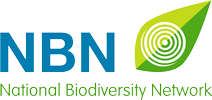Many dedicated recorders have contributed to the Orthoptera and Allied Insects Recording Scheme over many decades and we are delighted to acknowledge their work. Haes and Harding (1997) document the history of recording Orthopteroids in the Atlas of Grasshoppers, Crickets and Allied Insects in Britain and Ireland. They also list and acknowledge all the recorders who contributed data to the atlas. We would like to extend our gratitude to these recorders (many have contributed subsequent records) and others who have made recent contributions. The involvement and commitment of the volunteer recording community is inspiring.
Many photographers have provided images for use on this website and we thank them for their generosity.
The Biological Records Centre (BRC), established in 1964, is the national focus in the UK for terrestrial and freshwater species recording (other than birds). It works with the voluntary recording community throughout Britain and Ireland. The BRC database currently contains over 15 million records of more than 12000 species and continues to increase through contributions from National Recording Schemes and Societies.
BRC is the national custodian of data on the distribution of wildlife in the British Isles. BRC collaborates with the National Biodiversity Network to assist in sharing wildlife data. If you would like to find out more about BRC and getting involved with wildlife recording visit theBRC website or contact Helen Roy
BRC is part of the Centre for Ecology and Hydrology.
The Centre for Ecology & Hydrology (CEH) is the UK's Centre of Excellence for research in the land and freshwater environmental sciences. CEH's staff have specialist skills in a wide range of environmental disciplines, ranging from the smallest scale (the gene) to the largest scale (whole Earth systems). Our research is aimed at improving understanding both of the environment as we see it today and the natural processes that underlie the Earth's support systems - for example climate & water resources. We are particularly interested in the impacts of human activity on natural environments. We aim to generate workable solutions to today's pressing environmental problems.
The National Biodiversity Network (NBN) is a collaborative project which involves many of the UK’s wildlife conservation organisations, the government and country agencies, environmental agencies, local records centres and also many voluntary groups. All of these organisations collect and use biodiversity data. The NBN is making as much of the information as possible available to everyone who needs it.
The Joint Nature Conservation Committee (JNCC) is the statutory adviser to Government on UK and international nature conservation. Its work contributes to maintaining and enriching biological diversity, conserving geological features and sustaining natural systems. JNCC delivers the UK and international responsibilities of the four country nature conservation agencies - Council for Nature Conservation and the Countryside, the Countryside Council for Wales, Natural England and Scottish Natural Heritage.




